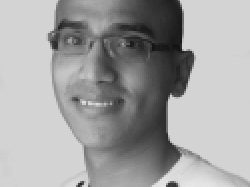
The Practitioner-in-Residence Program promotes human rights scholarship grounded in practice, and practice informed by critique, by providing an environment in which human rights practitioners can engage in research, writing, and scholarly discussion related to their work.
The program is intended to promote human rights scholarship grounded in practice, as well as practice informed by scholarship and critique. Applications are particularly encouraged from the Global South, and from those working on issues related to the areas of focus at the Human Rights Institute (HRI).
While in residence, practitioners are expected to work on their own scholarly, advocacy, or policy-oriented papers, human rights reports, or books for publication, or to develop workshops and new research agendas or prepare for conferences or new human rights projects. Some practitioners may wish to conduct advocacy at the United Nations or elsewhere.
What to Expect
Practitioners may be in residence for a flexible period of between one month and one year. For those interested, mentoring about academic scholarship and human rights work product is available, as are opportunities for presenting and obtaining feedback on draft work. Interested practitioners will also have the opportunity to participate in the broader intellectual life of the law school, and may deliver guest lectures in the Columbia Law School Human Rights Clinic and other human rights course offerings, participate in the mentoring of Columbia Law School students, advise on ongoing projects of the Human Rights Institute and Clinic, and design workshops or other events with experts from the field.
Practitioners-in-Residence will be provided access to Columbia University libraries, student research assistants, invitations to law school and university events and workshops, administrative support for event design and planning, and the opportunity to be integrated into the HRI.
The Practitioners-in Residence program does not provide a salary or cover travel or living expenses. Each year, however, one or more applicants from the Global South are selected to receive a Global Advocate Award to offset expenses associated with travel to New York and expenses during the residency in New York. Depending on the length of the residency, the award may not cover all expenses.
Alumni Spotlight

Osamah Al-Fakih
Yemen
Osamah Al-Fakih is the Director of Media, Communications, and Advocacy at Mwatana Organization for Human Rights (Mwatana), and his research and advocacy have focused on defending human rights against mounting violations by all sides to the current conflict in Yemen. Prior to that, he directed Mwatana’s research unit, leading field investigations into human rights abuses in Yemen. Previously, Al-Fakih collaborated with different local and international organizations including Human Rights Watch and Amnesty International. He was a fellow at Dejusticia, and co-founded #SupportYemen Media Collective during the 2011 uprising. Graduating with a bachelor’s degree in English literature from Sanaa University, Al-Fakih’s dedication to defending human rights was inspired by early experiences during the 2004–2010 Sa’ada Wars in Yemen.

Sarah Jackson
United Kingdom
Sarah Jackson is Deputy Regional Director for East Africa, the Horn of Africa and the Great Lakes for Amensty International. Based in Kenya, Uganda and Burundi for the last decade, Jackson has worked with Amnesty as Acting Deputy Africa Director, Head of the Africa Regional Office and Rwanda, and Burundi Researcher and with the American Friends Service Committee as Burundi Program Officer. She previously worked as Human Rights Watch's Great Lakes Associate.
Jackson was selected as one of 35 Women Under 35 in 2017 by Management Today in association with Accenture. She is also a Carnegie New Leader with the Carnegie Council for Ethics in International Affairs in New York, and a Fellow with Foreign Policy Interrupted. She holds a master’s degree in comparative politics and a bachelor’s degree in government and history from the London School of Economics and Political Science (LSE), is a Harvard-trained negotiator, and is an alumna of Harvard's Executive Education Program.
For a full list of current program participants and alumni, click here.
How to Apply
To apply, practitioners should send: (a) their CV; (b) a one-page letter of interest; (c) a project or research proposal of no more than five pages, setting out the applicant’s proposed work plan for their residence at the Human Rights Institute; and (d) two references. Please send all applications with the subject line “Application for Practitioner-in-Residence Program” to [email protected]. Applications will be accepted on a rolling basis, with practitioners ideally selected at least three months in advance of their residency.

